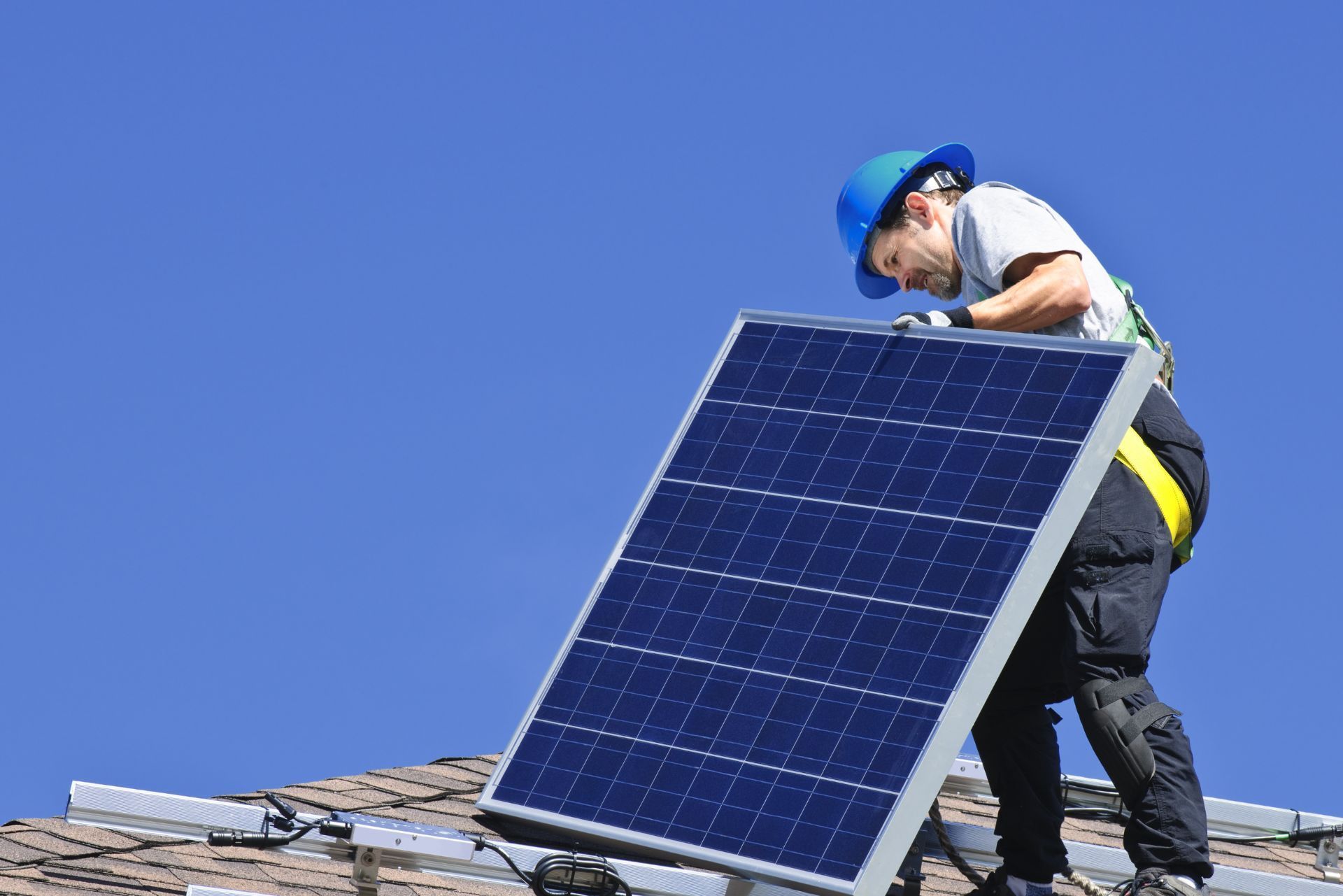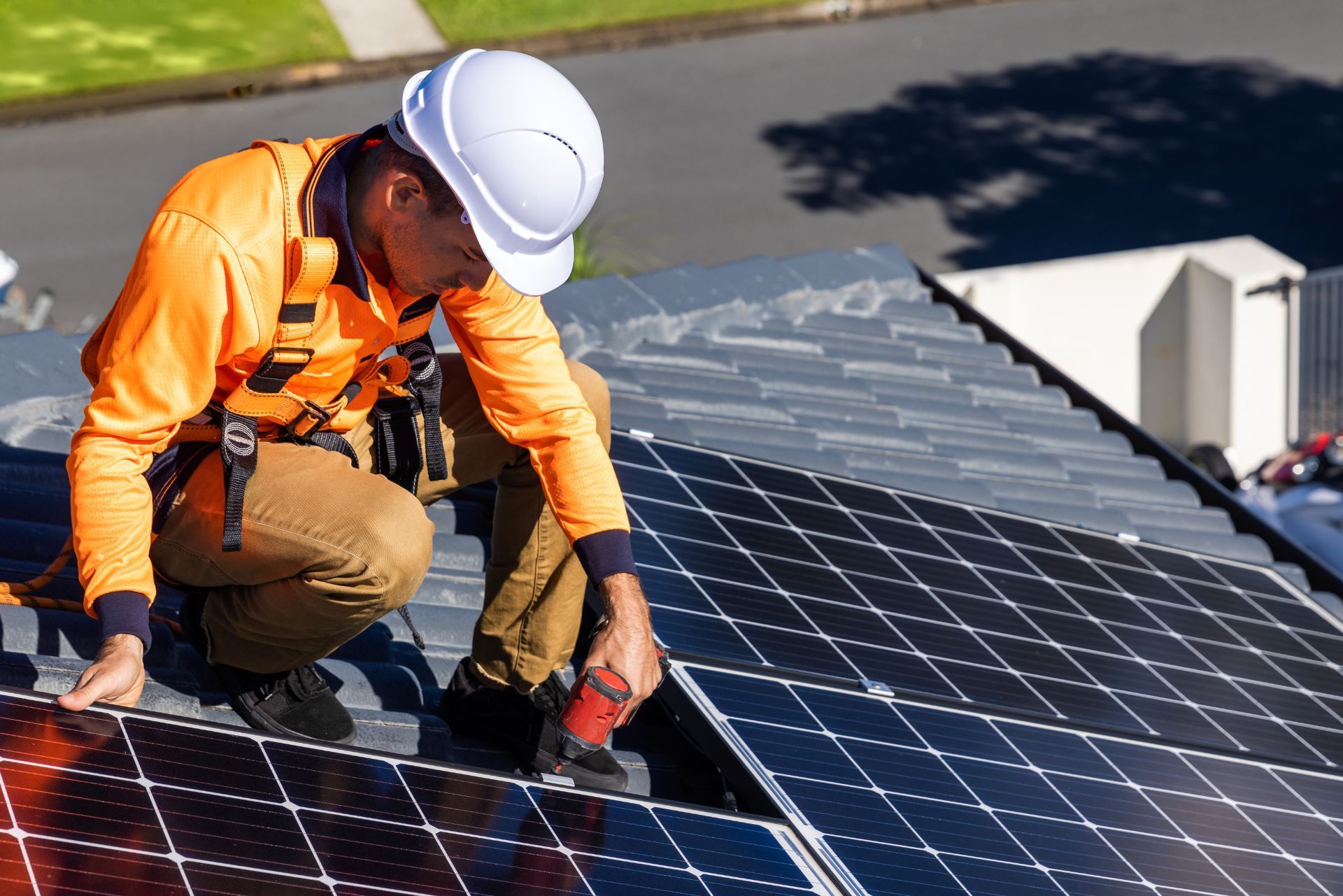
Top 3 Recommended Policies
As the demand for renewable energy continues to rise, solar installation has become a booming industry in Connecticut. However, with this growth comes the necessity for proper insurance coverage tailored to the unique risks faced by solar installers. This article delves into the various aspects of solar installer insurance, ensuring that businesses in Connecticut are well-informed about their options and requirements.
Understanding the Importance of Insurance for Solar Installers
Insurance is a critical component for any business, but it holds particular significance for solar installers. The nature of the work involves various risks, from property damage to potential injuries. Having the right insurance not only protects the business but also instills confidence in clients. In an industry that is rapidly growing, the stakes are high, and the repercussions of inadequate coverage can be severe, potentially leading to financial ruin or legal complications.
Types of Risks Faced by Solar Installers
Solar installers encounter a range of risks that can impact their operations. These include:
- Property Damage: Equipment and materials can be damaged during transport or installation.
- Liability Claims: Accidents can occur on job sites, leading to injuries or property damage.
- Business Interruption: Unexpected events can halt operations, resulting in lost revenue.
Understanding these risks is the first step in determining the appropriate insurance coverage. Each type of risk requires specific attention and protection to ensure business continuity. For example, property damage not only affects the immediate project but can also lead to delays that impact future contracts. Similarly, liability claims can tarnish a company's reputation, making it essential for solar installers to have comprehensive coverage that addresses these potential pitfalls.
Legal Requirements for Solar Installers in Connecticut
In Connecticut, solar installers must adhere to certain legal requirements, including licensing and insurance mandates. While specific insurance requirements may vary, having general liability insurance is often essential for operating legally. This insurance serves as a safeguard against claims that could arise from accidents or negligence, providing peace of mind for both the installer and their clients.
Additionally, contractors should be aware of state regulations that govern the installation of solar energy systems. These regulations may influence the type of insurance needed, making it crucial for installers to stay informed about local laws. For instance, some municipalities may require additional coverage for specific types of installations or may mandate that installers carry
workers' compensation insurance to protect their employees. By understanding and complying with these regulations, solar installers can not only mitigate risks but also enhance their credibility and trustworthiness in the eyes of potential customers.

Essential Types of Insurance for Solar Installers
To adequately protect their businesses, solar installers should consider several types of insurance. Each type serves a unique purpose and addresses different risks associated with the industry.
General Liability Insurance
General liability insurance is a fundamental coverage for any contractor, including solar installers. This insurance protects against claims of bodily injury or property damage that may occur during the installation process.
For example, if a client or a third party is injured on the job site, general liability insurance can cover medical expenses and legal fees. This type of insurance also protects against claims related to damage to a client's property, ensuring that the installer is not financially liable for unforeseen accidents. Additionally, general liability insurance can cover incidents that occur off-site, such as damage caused by equipment that is being transported to a job location. This broad coverage helps solar installers manage potential risks and maintain a professional reputation in a competitive market.
Workers' Compensation Insurance
Workers' compensation insurance is crucial for businesses that employ workers. In Connecticut, this insurance is mandatory for any company with one or more employees. It provides coverage for medical expenses and lost wages for employees who are injured on the job.
This type of insurance not only protects employees but also shields the employer from potential lawsuits related to workplace injuries. By having workers' compensation insurance, solar installers can create a safer work environment and foster employee trust. Furthermore, it can also include rehabilitation services for injured workers, helping them return to work more quickly and effectively. This commitment to employee well-being can enhance morale and productivity, ultimately benefiting the business as a whole.
Commercial Auto Insurance
For solar installers who use vehicles to transport equipment and personnel, commercial auto insurance is essential. This insurance covers vehicles used for business purposes, protecting against accidents, theft, and damage.
Personal auto insurance policies typically do not cover vehicles used for commercial activities, making it vital for solar installers to invest in commercial auto insurance. This coverage ensures that both the business and its employees are protected while on the road. Moreover, commercial auto insurance can also provide coverage for specialized equipment that may be stored in the vehicle, such as solar panels and installation tools. By safeguarding these valuable assets, solar installers can minimize financial losses and ensure that their operations run smoothly, even in the face of unexpected incidents.
While the essential types of insurance provide a solid foundation, solar installers may also benefit from additional coverage options tailored to their specific needs.
Professional Liability Insurance
Professional liability insurance, also known as errors and omissions insurance, protects against claims of negligence or inadequate work. For solar installers, this coverage is particularly important as clients may hold them responsible for performance issues or project delays.
This insurance can cover legal fees and settlements if a client claims that the installer failed to meet industry standards or contractual obligations. Having professional liability insurance can enhance a solar installer's credibility and reassure clients of their commitment to quality work. Furthermore, this type of coverage can also extend to consulting services, ensuring that any advice given regarding system design or energy efficiency is protected, which is increasingly relevant as solar technology evolves.
Equipment Insurance
Solar installers rely on expensive equipment and tools to complete their projects. Equipment insurance provides coverage for loss, theft, or damage to tools and machinery used in the installation process.
This type of insurance is crucial for maintaining business operations, as the loss of essential equipment can lead to delays and financial strain. By investing in equipment insurance, solar installers can safeguard their investments and ensure they are prepared for unexpected events. Additionally, many insurance policies can be tailored to include coverage for specialized equipment, such as solar panels and inverters, which are often subject to unique risks during transportation and installation.
Business Interruption Insurance
Business interruption insurance offers financial protection in the event that a business is temporarily unable to operate due to unforeseen circumstances, such as natural disasters or significant equipment failure.
This coverage can help solar installers cover ongoing expenses, such as rent and employee wages, during periods of downtime. By having business interruption insurance, installers can maintain financial stability while recovering from unexpected setbacks. Moreover, this insurance can be particularly beneficial in regions prone to extreme weather events, where the likelihood of project delays due to storms or other natural disasters is heightened. In such cases, installers can focus on recovery efforts without the added stress of financial burdens, allowing them to return to business as quickly as possible.
How to Choose the Right Insurance Provider
SSelecting the right insurance provider is a crucial step for solar installers. With numerous options available, it's essential to consider several factors to ensure the best coverage for the business.
Assessing Coverage Options
When evaluating insurance providers, installers should carefully assess the coverage options available. Each business has unique needs, and it's vital to choose a provider that offers policies tailored to the solar installation industry.
Reviewing the specifics of each policy, including coverage limits and exclusions, can help installers make informed decisions. It's also beneficial to inquire about additional coverage options that may be relevant to their operations. For instance, some providers may offer specialized coverage for equipment breakdowns, liability for installation errors, or even coverage for natural disasters that could impact solar panels. Understanding these nuances can significantly enhance the protection offered to the business.
Comparing Costs
Cost is often a significant factor when selecting an insurance provider. Solar installers should obtain quotes from multiple insurers to compare premiums and coverage levels. However, it's essential to remember that the cheapest option may not always provide the best protection.
Installers should weigh the costs against the coverage offered, ensuring that they are getting adequate protection for their investment. Additionally, considering the provider's reputation for customer service and claims handling can also influence the decision. A provider that may charge a slightly higher premium but has a stellar track record in claims processing can save installers time and stress in the long run. It's also worth asking about any discounts that may be available, such as those for bundling policies or for having a strong safety record.
Reading Reviews and Testimonials
Before committing to an insurance provider, it's wise to read reviews and testimonials from other solar installers. Feedback from peers can provide valuable insights into the insurer's reliability, customer service, and claims process.
Online forums and industry associations can be excellent resources for gathering information about insurance providers. Engaging with other professionals in the solar industry can help installers make informed choices based on real experiences. Furthermore, attending industry conferences or networking events can provide opportunities to discuss insurance options with fellow installers who have faced similar challenges. This firsthand knowledge can be instrumental in identifying which providers truly understand the unique risks associated with solar installation and can offer the most comprehensive support in times of need.

Cost Factors Influencing Solar Installer Insurance
The cost of insurance can vary widely based on several factors. Understanding these factors can help solar installers anticipate their insurance expenses and budget accordingly.
Business Size and Scope
The size and scope of a solar installation business play a significant role in determining insurance costs. Larger businesses with more employees and extensive operations typically face higher premiums due to increased risk exposure.
Conversely, smaller businesses may benefit from lower premiums, but they should still ensure they have adequate coverage to protect against potential liabilities. Assessing the scale of operations and associated risks is crucial in determining the appropriate coverage and costs. For instance, a small startup focusing on residential installations may face fewer risks than a large company handling utility-scale solar farms, which involve more complex logistics and regulatory compliance. As such, it is essential for businesses to evaluate their specific operational needs and risks to tailor their insurance coverage effectively.
Claims History
Insurance providers often consider a business's claims history when determining premiums. A history of frequent claims can lead to higher insurance costs, as insurers may view the business as a higher risk.
Solar installers should strive to maintain a good safety record and minimize claims through proper training and safety protocols. A clean claims history can lead to more favorable insurance rates over time. Furthermore, implementing risk management strategies, such as regular safety audits and employee training sessions, can not only reduce the likelihood of accidents but also demonstrate to insurers that the business is proactive about minimizing risks, potentially leading to discounts on premiums.
Location and Project Types
The geographical location of a solar installation business can also influence insurance costs. Areas prone to natural disasters or high crime rates may result in higher premiums due to increased risk.
Additionally, the types of projects undertaken can impact insurance costs. Complex installations or projects involving higher-value equipment may require more comprehensive coverage, leading to increased premiums. Understanding the local market and project risks is essential for accurate insurance budgeting. For example, a solar installer operating in a region with frequent hailstorms may need to invest in specialized coverage for equipment damage, while those working in urban environments might face risks related to theft or vandalism. Furthermore, as the solar industry evolves, installers may also need to consider emerging technologies and their associated risks, such as battery storage systems, which can introduce new liability concerns that must be addressed in their insurance policies.
Common Misconceptions About Solar Installer Insurance
Despite the importance of insurance, several misconceptions can lead to misunderstandings among solar installers. Addressing these misconceptions can help business owners make informed decisions about their coverage.
“I Don’t Need Insurance if I’m Small”
Many small business owners believe that they do not need insurance because of their size. However, even small solar installation businesses face significant risks that can lead to financial hardship without proper coverage.
Accidents and liabilities can occur regardless of the business size, making insurance a necessary investment for all solar installers. Protecting the business from potential risks is essential for long-term success.
“My General Liability Insurance Covers Everything”
Another common misconception is that general liability insurance covers all potential risks. While general liability insurance is crucial, it does not cover every aspect of a solar installation business.
Installers should be aware of the limitations of their general liability policy and consider additional coverage options, such as workers' compensation and professional liability insurance, to ensure comprehensive protection.
“Insurance is Too Expensive”
Some solar installers may shy away from obtaining insurance due to perceived high costs. However, the financial impact of an accident or liability claim can far exceed the cost of insurance premiums.
Investing in insurance is a proactive measure that can save businesses from devastating financial losses in the event of unforeseen circumstances. Understanding the value of insurance can help installers view it as a necessary expense rather than a burden.
Conclusion: Securing the Future of Solar Installation in Connecticut
As the solar industry continues to grow in Connecticut, ensuring adequate insurance coverage is paramount for installers. Understanding the various types of insurance available, assessing risks, and choosing the right provider can significantly impact the success and sustainability of a solar installation business.
By investing in comprehensive insurance coverage, solar installers can protect their businesses, employees, and clients. This not only fosters a safer working environment but also enhances the credibility and professionalism of the industry as a whole.
In an ever-evolving market, staying informed about insurance options and requirements is essential for solar installers looking to thrive in Connecticut's renewable energy landscape. With the right insurance in place, businesses can confidently focus on delivering quality solar solutions to their clients while safeguarding their future.
Contact Us
Phone
Locations
Connecticut Location
703 Hebron Ave., 3rd Floor, Glastonbury, CT 06033
North Carolina Location
436 East 36th St., Charlotte, NC 28205


